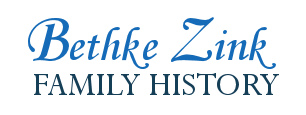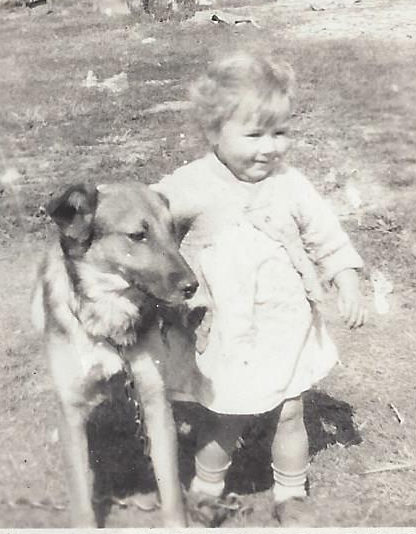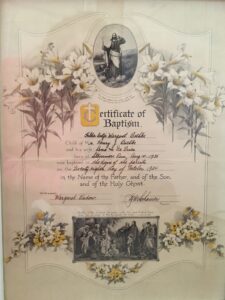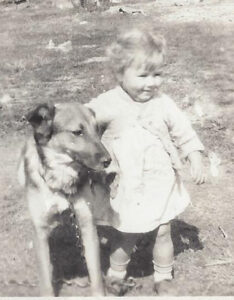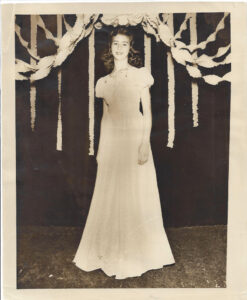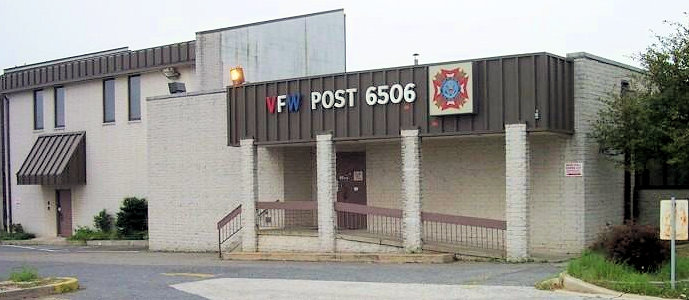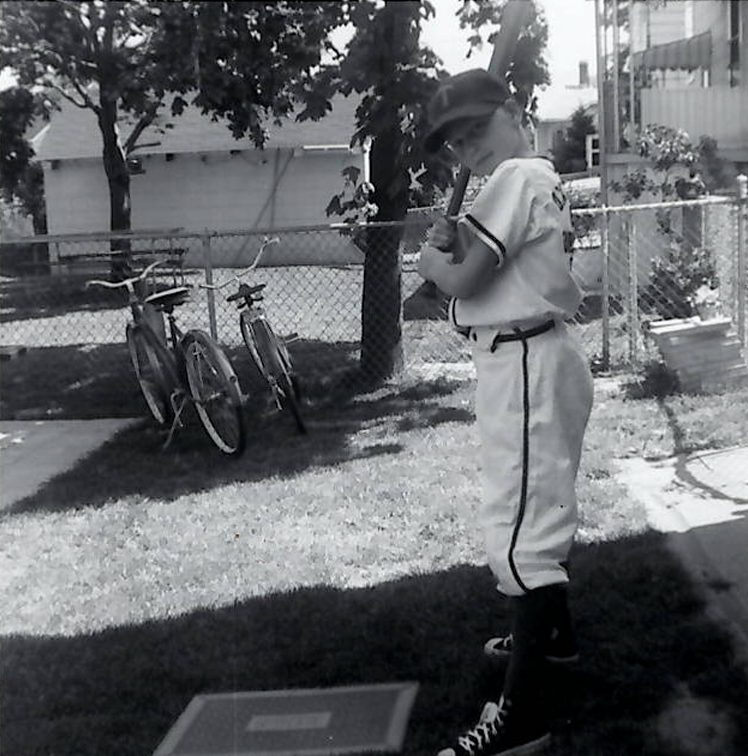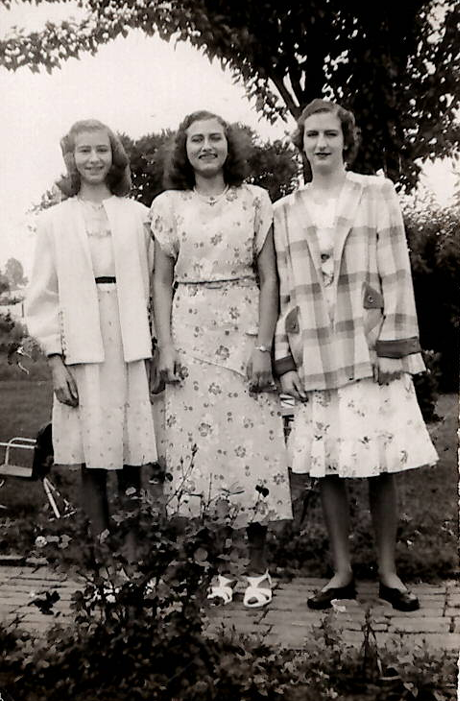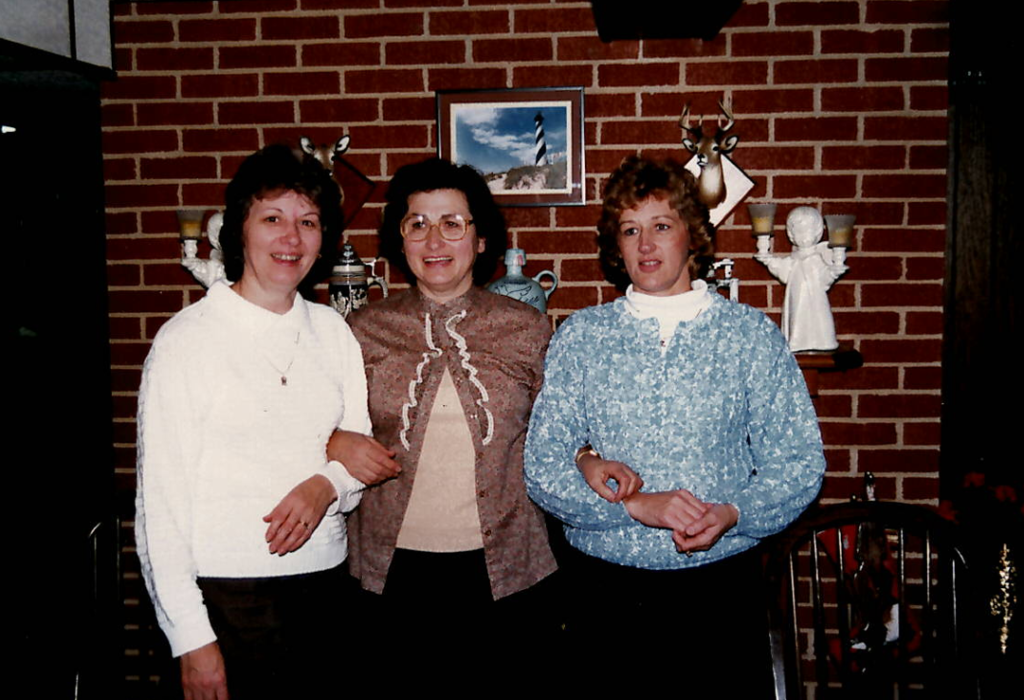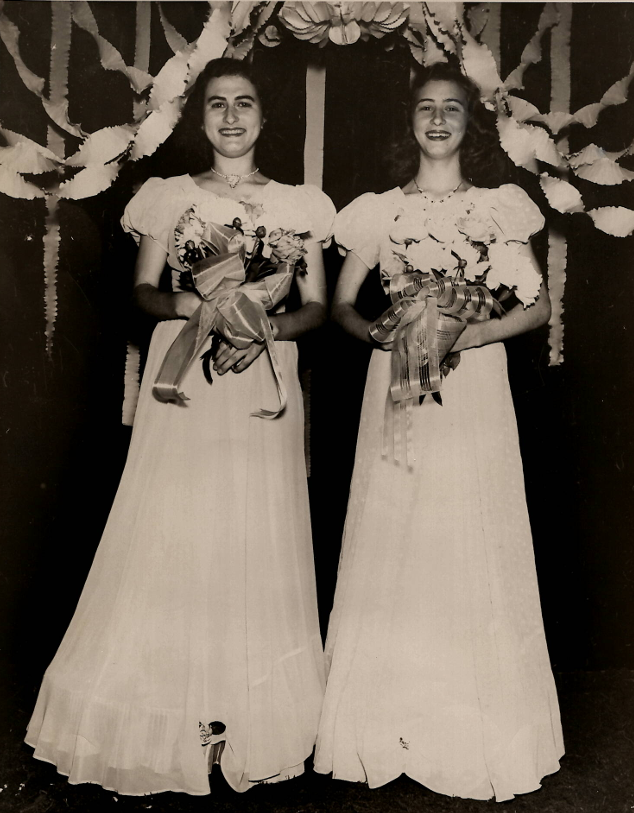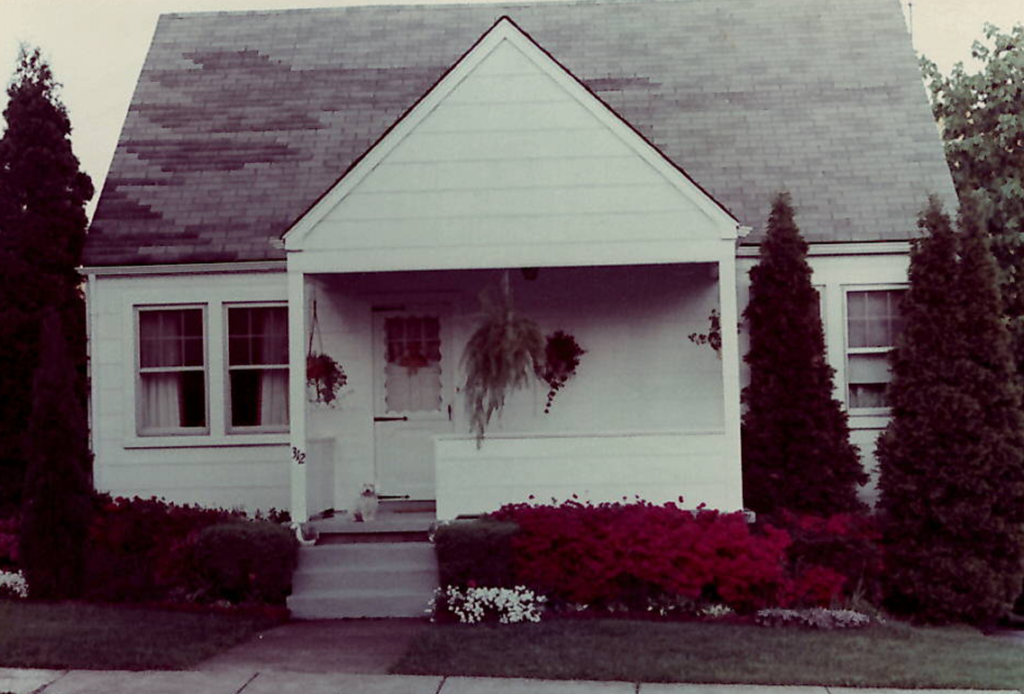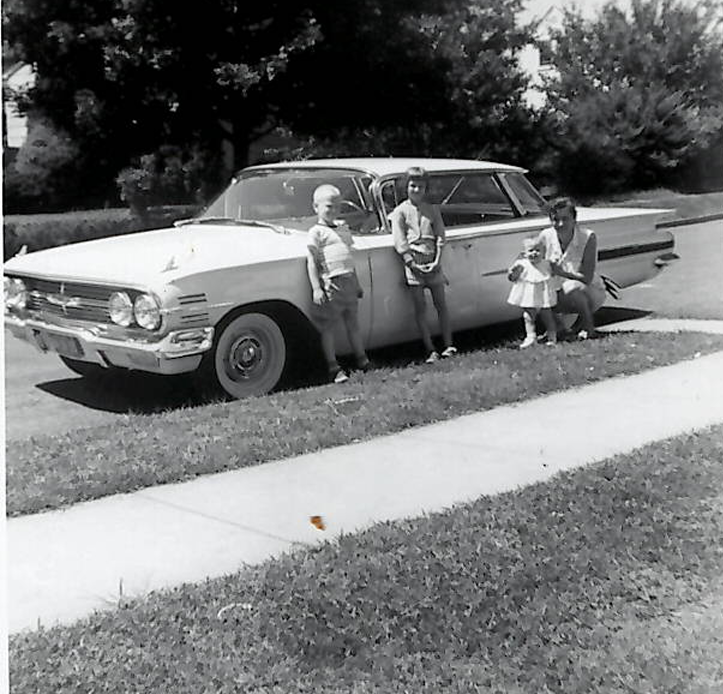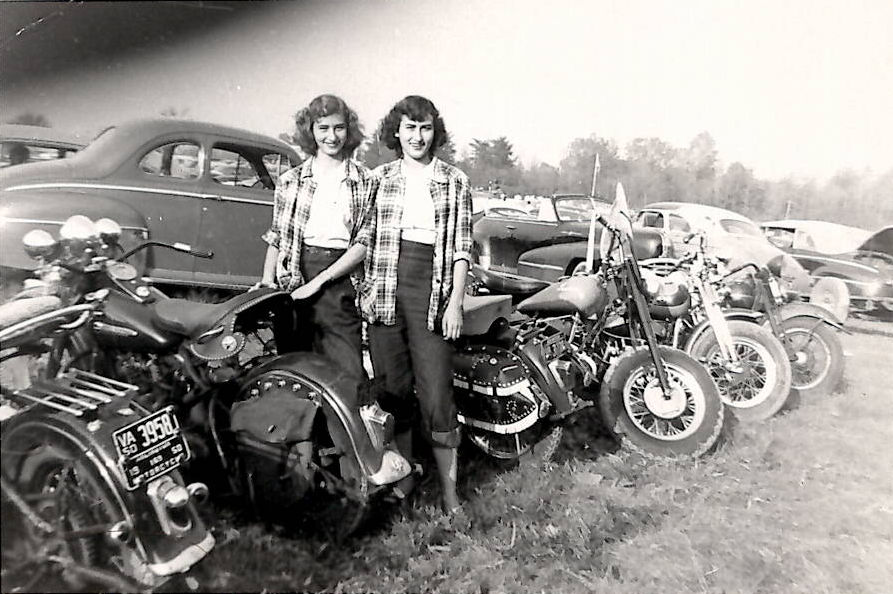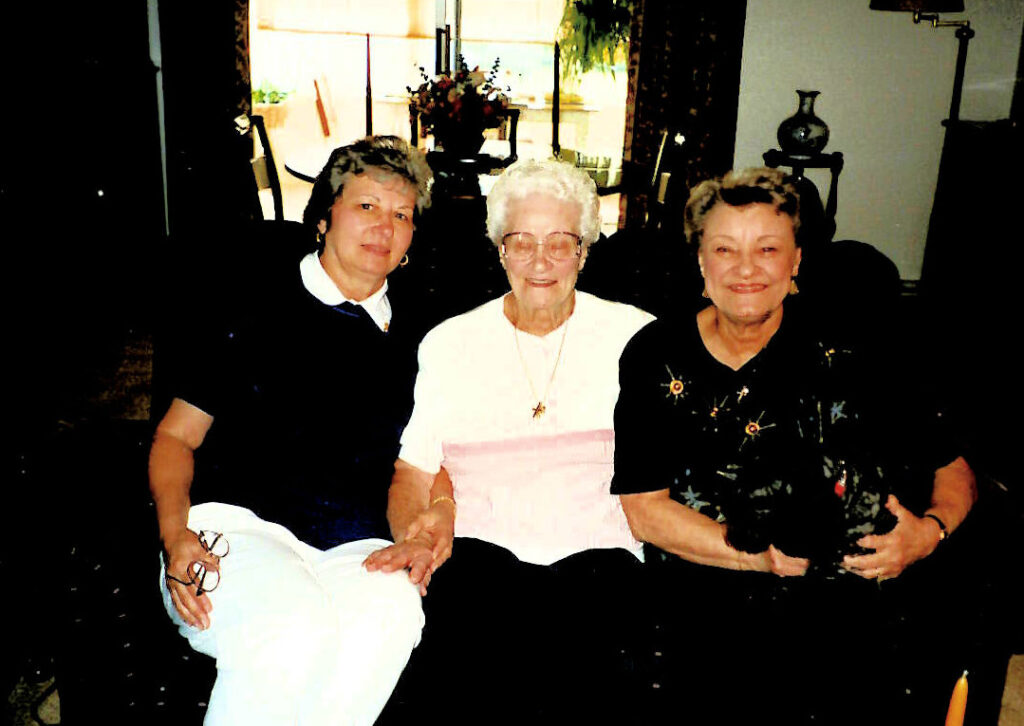July 1992 – Our Visit to Germany
Our trip and visit to the relatives was just awesome. We were warmly greeted by everyone-family, neighbors, shopkeepers and the list goes on and on.
We stayed in the home of my cousin Bernhard, his wife, Mine (Me-nah), 2 of their 4 children, Anja — 16 years, and Michael — 19 years. I wore Michaels’ wooden shoes and Ray helped Bernhard with barnyard chores. Turkeys, peacocks, hens, garden vegetables, homemade bread, lots of family photo albums, and tea every few hours with homemade cakes and real cream for the tea. Anja and Michael gave up all activities in order to spend as much time as possible with us, therefore, we were engaged in long discussions on family history, world events, jobs, schools, computers and on and on. They spoke English as does Mine so it was easy to converse.
Each day Bernhard arranged to take us to visit a different relative. And, oh my, we were so warmly greeted, hugged, kissed, pampered with the most delicious food and tea with real cream.
Our first day of visiting was to “Cousin” Hermann and to my great shock – he is really my step-brother! My grandmother raised him as her own as was the custom in those days. Hermann and I cried together – it was a very special kind of event. He didn’t want us to leave and even wanted to pull me from the car so he could keep me a while longer. His two daughters were there and his wife plus three grandchildren. They adored us! The Sunday before we left they came laden with a basketful of gifts for us to take back to America so we would never forget them!
We visited cousin Leni and family — it was an afternoon spent in their gorgeous Tea House or Garden House. We were overwhelmed with attention, a cookout in their flower adorned garden. Our parting gift — a handmade ceramic dinner bell — cobalt!! Leni remembered that my mother loved blue and I was to have the special blue bell to take back to the U.S. to remember them.
Next a visit to Cousin Grete and family on her huge, huge dairy farm. There I cradled in my arms the youngest of all, an almost 4 week old baby girl. They saved the new birth celebration until our visit. When a new baby is born, everyone comes to visit and share “Kindertur”. Kindertur is a special alcoholic drink with raisins in it. The custom has it that it is only served for the birth of a child and for special blessing, health, and a long life for the baby. It was a real special day. Our gift was a dish from Grete’s family china dinner set. Now when she sets her table for a family dinner — one plate will be missing — it is in America with Hilda. I promised her that I would place her plate at our family dinners and would remember her!! The dish is blue and white, a windmill in the center with a thatched roofed house on either side. A canal is in the foreground with a dinghy boat in the water. I just love the dish and the thought behind it.
On to cousin Ewaldine’s house. My mother stayed at her home on 2 of her visits back to Germany. I heard so much about Ewaldine from my mom that when I finally saw her it was as if we had known each other for a long time. Our embrace seemed to last forever. It was a very, very lovely meeting. She has also an enormous dairy farm with many cattle. Ray was given the royal tour of Grete and Ewaldine’s dairy operation. There again, the food was delicious and memorable. Her gift to us was an oil lamp which belonged to her complete set of china. The pattern is the Ostfriesen Rose. I promised to light it often and remember her and her family. We all cried! Such warm people! Such thoughtful gifts. Nothing was bought from a store just for the occasion but instead a part of something that belonged to them was to be shared with us.
We visited cousin Evert and his family — same scenario — our parting gift — precious family photos he wanted me to have so I could look at them and see the great grandparents and so on.
Next a visit to the place where my mother grew up and lived. The house had burned down many years ago and there is now a pasture. However, we visited the house next door to see if it was the same family as when my mom’s family lived there. Sure enough!! The 87 year old man went to school with my mom and remembered her well. His wife, daughter and family were all having afternoon tea. Their 16 year old grandson spoke English quite well — he & I had a lengthy talk and he didn’t want us to leave — he was so thrilled to be conversing with an American with such close ties to his homeland
One day was set aside for visiting the graves of my grandparents and other relatives. That was a real experience — the cemeteries are more like flower parks, ornate, beautifully landscaped, and serene places. Also visited the church where my mother had attended. It is about 550 years old and very well preserved.
Not be forgotten — we visited Mina and Bernhard’s son, Hans-Jorge and his expectant wife – we were hoping baby would come during our visit — was born 6 days later — a boy! It was a 2-1/2 hour drive to Bealefield to their home. It gave us the opportunity to see some lovely country, the remains of a concentration camp, a health spa resort, and a 140 kilometer ride on the autobahn. Hans-Jorge works in the world-known camp for special children with disabilities. It was a lovely day with them, they had lunch prepared for us in their flower garden.
And then our visit had to come an end. Bernhard and Mine drove us to the train station in Leer where they had met us in a joyful, happy reunion. The train was right on time, our parting was so emotional and I still get tears in my eyes when I think about it. It was the same station and platform where my mom got on the train for a new life in America. The same train station where Bernhard met her on her visit to their home the last time she was in Germany. Ray and I boarded the train, put the window down so we could say more goodbyes again and again. The train pulled away and we were heading back on the journey to our kids waiting for us in the U.S. Ray and I call it our “Sentimental Journey” as we do have very, very fond memories of being with the relatives. They prepared for our visit and made it very special. Bernhard and Mine are very gracious, humble and special people they shared everything they owned with us. We learned so much about their lifestyle. They speak of my mom with reverence and grace which made me realize how much they too loved her.
Northern Germany is lush, flat, green, numerous windmills, and canals. I had always wanted to meet the relatives, to talk of family ties and I returned with a deeper sense of being a part of their world. Visiting their country was a real new experience both spiritual and cultural. We did not experience much difficulty with communication. Anja had volunteered to be near us to help with word translation. Almost all the young in Germany speak English and they were so proud to communicate with us.
What struck me the most, was how we were looked up to as Americans as well as relatives. Surely it was more than we look up to ourselves. Mine (Me-nah) pu it so well – “the way they look at you, you would think you came from outer space”.
We were happy to be back home. My lifetime dream was fulfilled.
